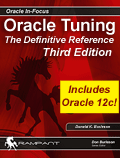-----
 An un-altered overseas supermarket photo!
The only shortcoming of Intel-based servers is their 32-bit architecture. For Oracle, the 32-bit architecture means that very large memory regions (e.g., the Oracle System Global Area) cannot grow beyond four gigabytes—a size far smaller than their 64-bit cousins, where Oracle RAM regions commonly exceed 20 gigabytes.
However, this 32-bit limitation is about to change. The impending availability of Intel 64-bit architecture has caused widespread excitement, and Intel-based servers will soon be able to compete with giant proprietary UNIX servers. IBM has already announced it is abandoning its proprietary AIX UNIX dialect in favor of Linux. While Oracle is quite vocal that Oracle is faster than SQL Server on Intel and has announced a record-breaking benchmark test with the Itanium processors, the company is also very careful not to compare operating system environments.However, Oracle professionals now have a choice: They can use the Intel-based server on Oracle with Linux or Microsoft Windows. There is a huge debate about which OS is best. In support of Oracle Linux Roby Sherman performed an exhaustive study of the speed of Oracle on Linux and Microsoft Windows using identical hardware. Sherman currently works for Qwest Communications in the data technologies group of IT architecture and transversal services. He is a recognized expert in designing, delivering, tuning, and troubleshooting n-tier systems and technology architecture components of various size and complexity based on Oracle RDBMS technology. When you read the full text of the paper, it is clear that Linux has significant advantages over Windows, not just in performance, but also in flexibility of administration and management.  Sherman concludes: "From perspective of performance, RedHat Linux 7.2 demonstrated an average performance advantage of 38.4 percent higher RDBMS throughput than a similarly configured Windows 2000 Server in a variety of operational scenarios." Sherman also notes: "Another point of contention was Window's lack of consistency between many database administrative functions (e.g., automated startup, shutdown, service creation, scripting) compared to what DBAs are already used to in many mainstream UNIX environments (e.g., Solaris and HP-UX)." In support of Windows On the other side, there are Windows supporters who claim that Oracle and Oracle9iAS run far faster using a Microsoft OS. According to John Taschek of EWeek magazine ("Microsoft, Oracle in Benchmark War"), Microsoft conducted a performance benchmark of Oracle’s application server (Oracle9iAS) and concluded: "The results show Windows is indeed faster than Oracle in this particular test—the first time that the same load testing tool and hardware platform were used. However, there are several reasons why this test is not completely valid, but there are two in particular that come to mind: The code used by Microsoft is obviously not Java, and, therefore, no direct comparisons can be made, and Pet Store was never designed to be a benchmark." Where from here? For now, there is no conclusive finding about whether Oracle Intel is best on Linux or Microsoft Windows. Much of the problem lies in the definition of "best." From an Oracle management perspective, Oracle professionals who grew up on the Windows GUI fear having to learn cryptic Linux commands, while UNIX Oracle professionals detest the complicated Windows registry and lack of a command-line interface. From a performance perspective, the debate continues, with neither Linux nor Windows taking a clear lead. However, one thing is clear: As Intel-based processors leap into a 64-bit architecture, Oracle shops will be rushing to adopt these lower cost server alternatives, and proprietary UNIX vendors such as Hewlett-Packard, Sun, and IBM will also be forced to lower their prices to remain competitive.
What if Linux were like Windows?
I run a 64-bit PC with a 32-bit Windows OS, and I’m used to dealing with the inevitable memory leaks, unplanned locks-up and re-boots. I even use IE7 Beta, guaranteeing that I have frequent memory-related problems. It’s fun to watch Windows freak-out with memory problems, as bits and snippets from Random RAM heaps display on your screen. It makes me wonder what it might be like on a shared Windows platform. I first remember seeing buffer overflow RAM leaks in Cobol programming where a S0C4 would include RAM from other regions.
Anyway I wonder what Linux would be like if we had constant zombie processes, core dumps from RAM trace files, kernel panics and Linux-level enqueues on shared resources? Of course, the folks in-the-know never get into the Linux GUI components because they know the command syntax. A reflex-knowledge of Linux commands can out-do any GUI, any day, and that’s why you can’t fake knowing Linux.
It’s fun to watch alleged Linux GUI experts squirm when you ask them to use vi for a complex change, write a shell script or modify a crontab. If it’s not in the GUI they can’t do it and they are lost at the command prompt. Now, I appreciate the point-and-click features of a GUI, but I still write DOS scripts (SFU, Windows services for Unix) when I need a series of tasks.
|
-----
http://www.dba-oracle.com/art_builder_linux_oracle.htm


No comments:
Post a Comment